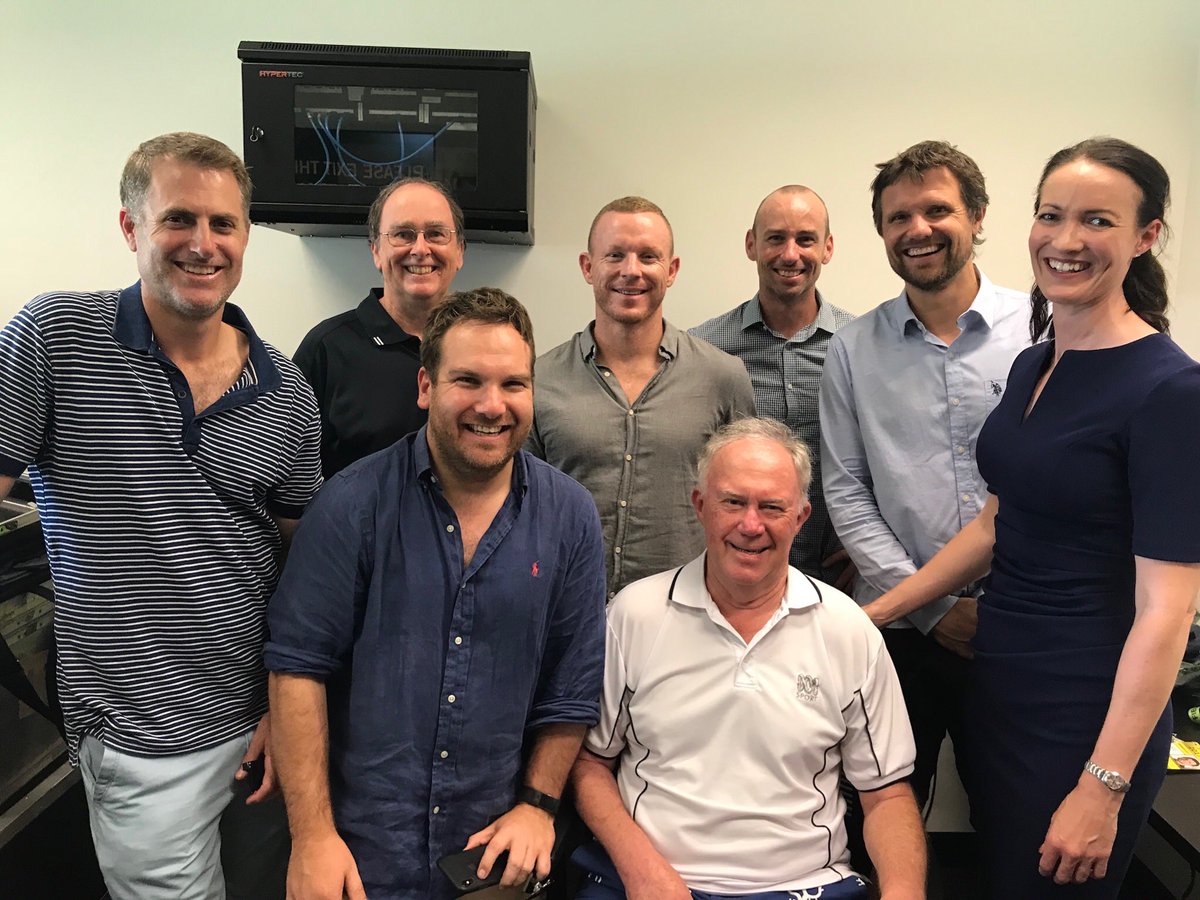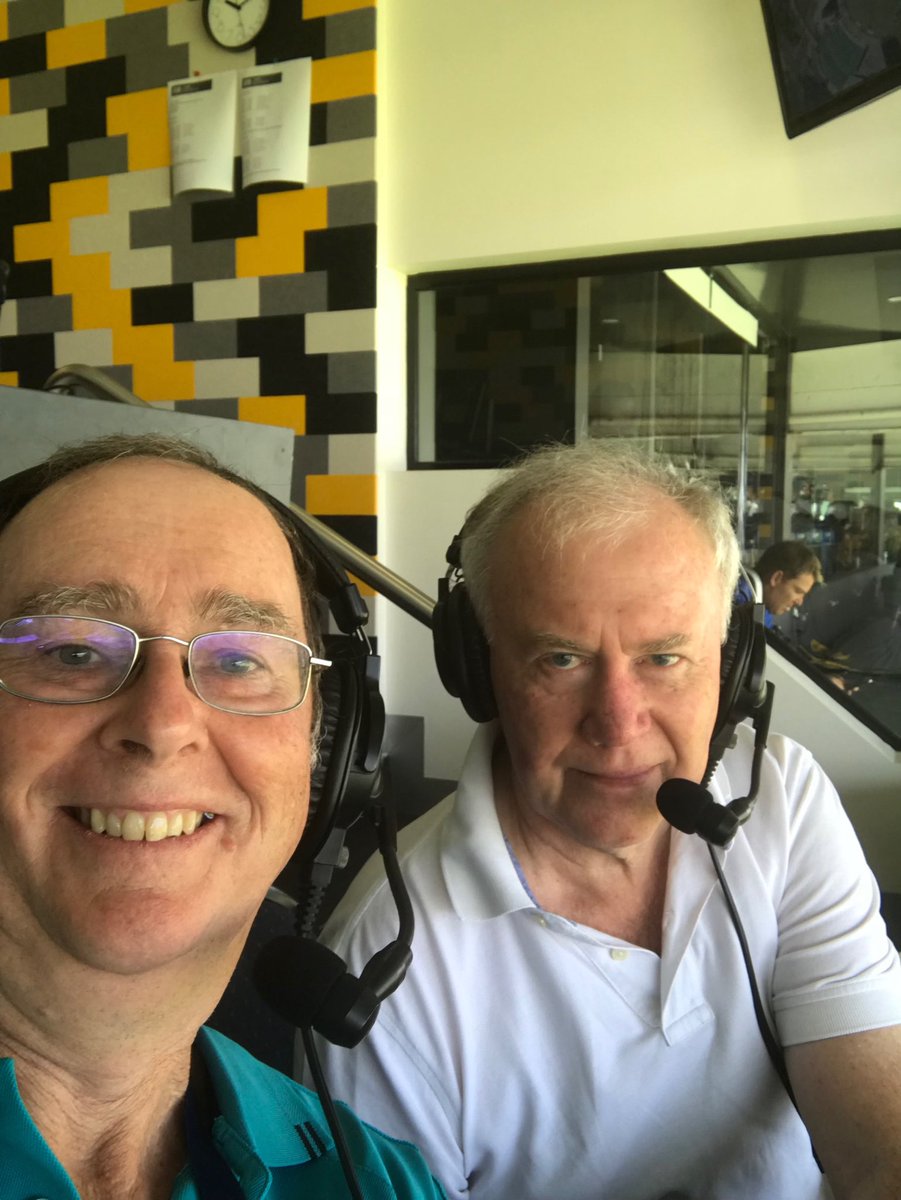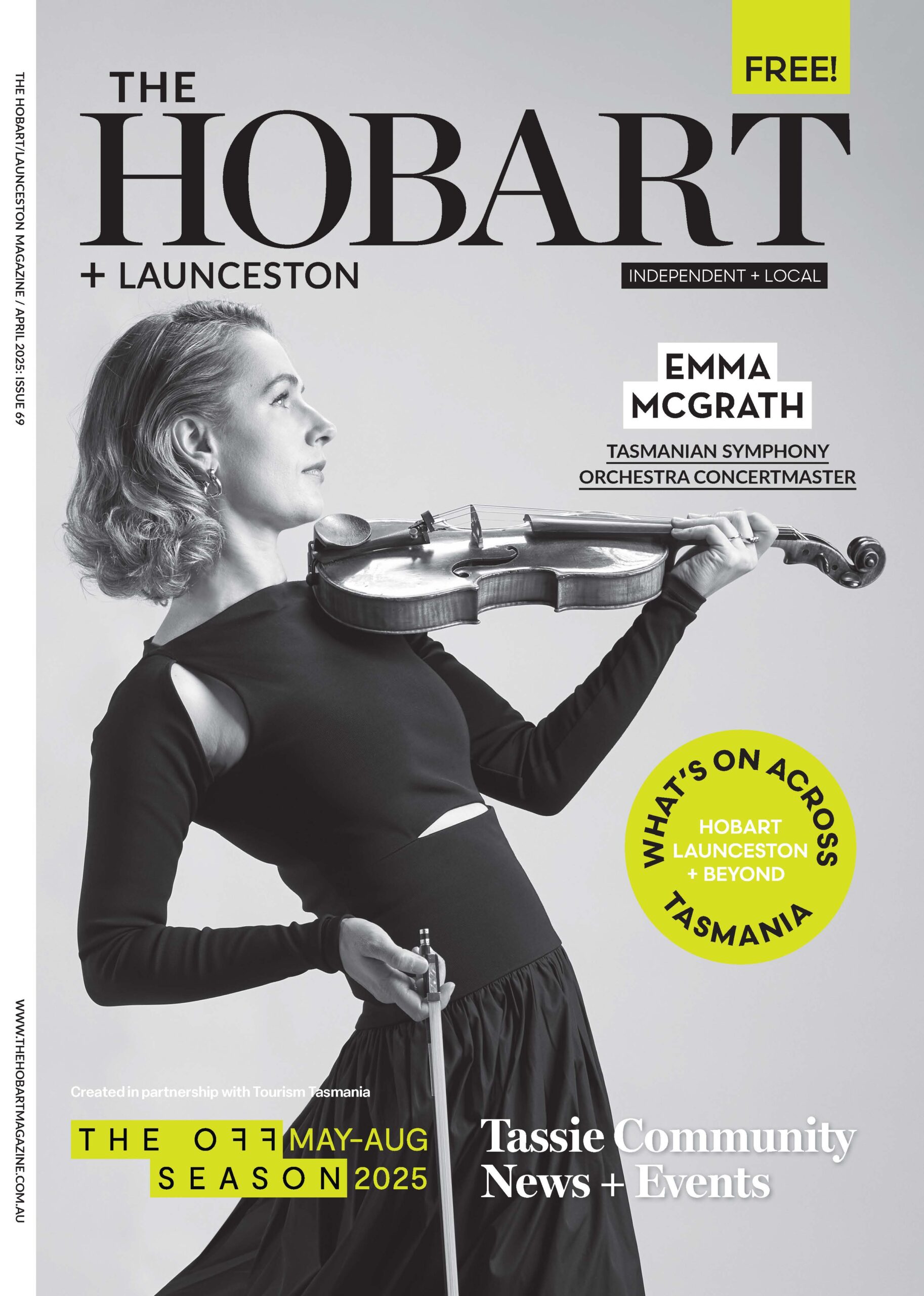Hobart Cricket Statistician Ric Finlay
by Stephanie Williams

Did you know that one of Australia’s most sought after cricket statisticians lives here in Hobart? This summer, listen for the voice of Ric Finlay over the airwaves, contributing facts and stats he’s gathered since the 1980s, stored in the database he built. He has also amassed an extensive collection of cricket books and almanacs, including not one but two full collections of Wisden Cricket Almanacs, dating back to 1864.
Where did the fascination with cricket and stats start? It was purely a hobby initially. It’s developed a little wider than that now! I come from a farming background in the Midlands, just west of Campbell Town we had a farm there. I was kept home from school for a term when I was nine because I used to get awful bronchitis. I was listening to the radio at home. There was the England versus Australia Ashes series in 1962. Dad had the ABC cricket book, so while I was lying in bed, recovering, I was filling in the details of the game. I’d always been interested in numbers for some reason. I like quantifying things. The two go together because cricket is a very mathematical game.
You have developed an extensive cricket database, borne from your love of recording stats. How did that happen? I became a math teacher and worked for 35 years with the education department. When computers came along in the 1980s all my pen and paper cricket stuff was immediately obsolete. Computers really opened a whole wide new world to me. I taught myself BBC Basic, got a computer and had my own little database to start with. In the early 1980s, I picked up a little bit of work with the ABC doing the stats. The computer program helped me provide statistics much quicker than I could with pencil and paper. In 1993, I was teaching at Hobart College and I had a maths teacher colleague, David Fitzgerald, who was also very interested in cricket and had taught himself programming skills. He programmed a new database and I inputted the match details. By the end of 1993, we had a product which, because of his superior programming skills, was saleable. We started our own little business and worked together as a partnership for well over 20 years until he unfortunately became ill and he passed away in 2017. I was left with the database that I can always build on. It’s been quite a journey. We started off with a test match database but after that, very quickly, added a one-day internationals, the Sheffield Shield and all the local Australian top level domestic cricket. We now also cover all the major Twenty20 leagues, like the IPL and the Caribbean Premier League, Pakistan, Bangladesh, South Africa, and New Zealand, as well as Australia and England, of course.

When you started the database, was the intention commercialising it? Yes, it was. We had this idea we could make a little bit of money from it, and it’s been a nice bit of pocket money over the years. It’s a brilliant broadcasting tool and it immediately made me more employable because I take it along to the match that we’re covering and call up stats as required fairly quickly. The ABC recognised that and took me on as their statistician. I now travel around the country on the test circuit.
You connected with the ABC in the ‘80s. How did your media career develop? It started with me sitting with the ABC commentators during games and passing notes to inform them about any statistical developmental or milestones. The ABC management always thought they could pick up someone local to do the job – at a test match in Brisbane, there would be someone in Brisbane doing that and so forth. But after a while, it became obvious, particularly to some of the commentators, that what I could offer and what most locals were offering was worlds apart. Some of them put some influence, I think, on my behalf to management, and so I’ve been able to join the team on the circuit. In terms of speaking on air, I was just someone quietly in the background. But after a while, I think they came to realise that being a teacher, I’d have a certain amount of speaking skills and could be trusted. Instead of passing notes (my handwriting is terrible!) and then spending half the time trying to decipher what I was writing, it became a lot easier for me to say it. The speaking aspect has only been a relatively recent thing, in the last five or six years. I try not to, over-egg at what I’m doing and just keep my comments succinct and short, and I think that seems to work pretty well.
When you watch a game are you actively recording stats, or do you get reports afterward? I’ll watch a match but I don’t add it to the database until the match is complete. When I’m working with the ABC, I’ll score it as well because that’s the sort of information needed for the broadcast. Depending on how many matches are being played, I try to get the matches updated within 24 hours of their completion for my clients to get on the website so they can download it.
Who are your database customers? Originally we thought we’d just get people interested in cricket statistics, but as it turned out, the journalists latched on to it fairly quickly. After a while, television broadcasters became interested because we had huge data which can be used to produce graphics for their statistical information on the graphics that appear at the bottom of their broadcast. We’ve still got a lot of hobbyists, journalists, cricket associations and television broadcasters.
What triggered that transition from teaching to stats full-time? I was able to emerge from teaching with the superannuation I needed, so I could concentrate on I do lots of other things as well. I’m heavily involved in barber shop singing music, for example.
What does barber shop entail? We rehearse three or four times a week and performances and so on. I’m in a men’s quartet, Four Fathers, a mixed quartet, Jacapari, and a chorus, Deep South, here in Hobart as well. I help administer that body and I’m on the committee.
Who do you find most exciting to watch playing cricket right now? I’m not really into individual player worship, I suppose, I take a more academic view. I like watching the West Indies when they’re on song. They’re exciting and play with flair. I’m full of admiration for the Indian team and I’ve got a soft spot for New Zealand because they have limited resources and a smaller population. They play way above their weight really. I mean, they’re the world test champions at the moment. And, of course, I always barrack for Australia.

Tasmania has produced some excellent players, and a few Australian captains. Why do you think that is? We’re in the middle of nowhere, essentially, and it’s hard to get to bigger competitions. It’s very rare we’ve had 11 players who were born in Tasmania. For example, New South Wales is such a huge cricket playing centre, and only 11 of them can play for NSW at any one time. So we tend to get a lot of players who realise it’s going to be really difficult to get into the NSW team so they come down here. Ed Cowan is an example. He was a really good player, but was struggling to get a regular place in the NSW team. He came down and ended up making the test team from here. He was a great performer for Tasmania. We get some of the talent that’s overlooked by the other states and they tend to do well with us. But having said that, we also produce very good local players. I mean, Ricky Ponting, and Tim Paine and Matthew Wade were school friends, and here they are, they’ve both played for Australia, which is wonderful. We only started Sheffield Shield cricket on an equal basis in the early 1980s. A lot of really good players who would’ve made it, played for any other state or been born in any other state would’ve probably made the test team. But we were just unnoticed.
You have almost 16,000 Twitter followers. How do you think social media has played into cricket? It’s been brilliant. I’ve got a lot of followers who seem to be interested in the stuff I tweet. That’s been a revelation to me that there are other people who are as weird as I am! I like getting some left field stuff out there, not your basic straight down the line stat, but something different. I keep it as statistical as much as possible because Twitter can be a very confronting place sometimes. I try and steer clear of that.
Do you keep track of women’s cricket as well? Oh, I do, certainly. That’s another interesting story because I didn’t think there’d be a market for it – when we started women’s cricket had no profile whatsoever. But David had a daughter who played junior cricket for Tasmania and he was keen as mustard to have it. I reluctantly agreed and as it turns out, he was spot on!

What do you enjoy doing outside cricket? I’ve mentioned singing, I want to spend almost as much time doing that as doing this. I really enjoy playing tennis. I play two or three times a week, and enjoy spending time with my wife. We have a shack up at Bicheno. We like to get up to there whenever we can, and that doesn’t leave a lot of time for much else. I’ve got two children and they’ve got three grandchildren.

